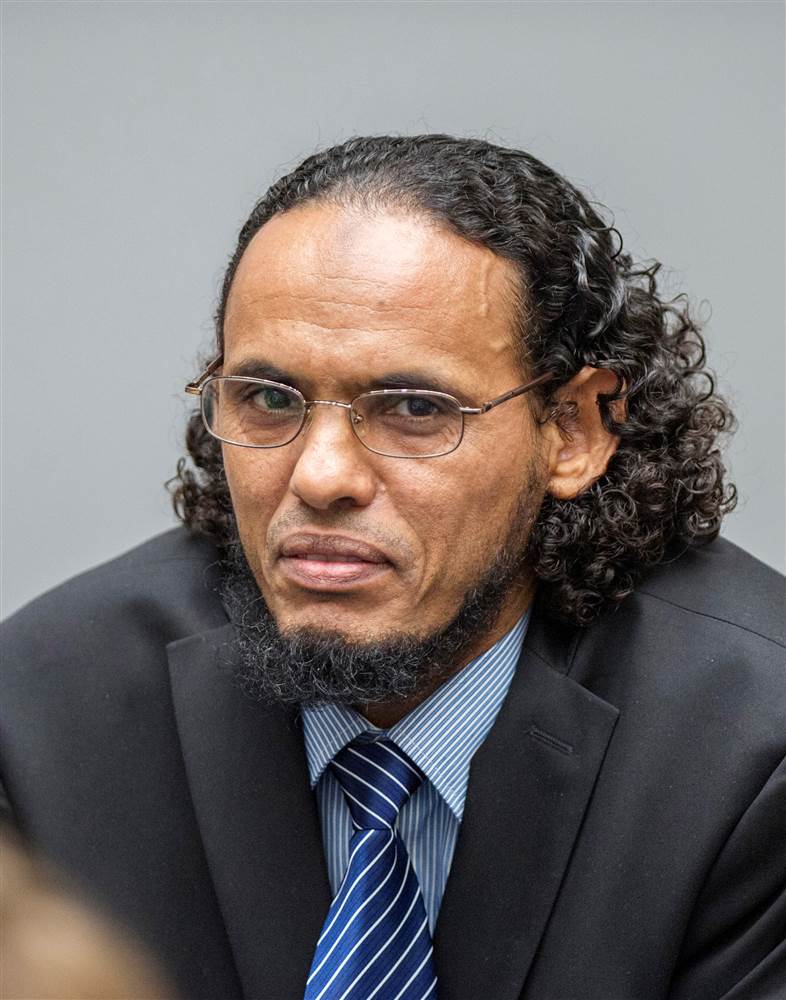-
Tips for becoming a good boxer - November 6, 2020
-
7 expert tips for making your hens night a memorable one - November 6, 2020
-
5 reasons to host your Christmas party on a cruise boat - November 6, 2020
-
What to do when you’re charged with a crime - November 6, 2020
-
Should you get one or multiple dogs? Here’s all you need to know - November 3, 2020
-
A Guide: How to Build Your Very Own Magic Mirror - February 14, 2019
-
Our Top Inspirational Baseball Stars - November 24, 2018
-
Five Tech Tools That Will Help You Turn Your Blog into a Business - November 24, 2018
-
How to Indulge on Vacation without Expanding Your Waist - November 9, 2018
-
5 Strategies for Businesses to Appeal to Today’s Increasingly Mobile-Crazed Customers - November 9, 2018
Destroyer of Timbuktu’s heritage goes on trial in the Hague
Mahdi, aged about 40, is also the first Islamic extremist charged by the ICC, and the first charged with crimes arising out of the conflict in Mali.
Advertisement
In 2012, Mahdi allegedly led al-Qaida militants on a rampage through Timbuktu’s historic sites as the fighters fled French and Malian troops liberating the city, which is a U.N. World Heritage site.
The trial is continuing even after Al Mahdi’s guilty plea to give an opportunity to Timbuktu residents to relate the impact of the destruction on their lives.
Mahdi warned other Muslims against carrying out similar acts, saying that “they are not going to lead to any good for humanity”.
The trial comes amid heightened worldwide concern about the fate of many cultural and religious monuments in the Middle East and North Africa, where sites of early civilization have deteriorated or been razed in armed conflicts.
Court documents state that the buildings in Mali were “regarded and protected as a significant part of the cultural heritage of Timbuktu” and that “the community in Timbuktu was involved in their maintenance and used them for their religious practices”. The structures were UNESCO world heritage sites.
“We. deeply regret that the charges against Al Mahdi were not widened to include crimes against the civilian population, including sexual and gender-based crimes, whose victims are far too often ignored during accountability processes”, FIDH member organizations said in a statement.
A brilliant pupil, he spent time in Libya and Saudi Arabia, then went on to a Koranic college and worked as an Islamic teacher elsewhere in Mali before returning to the Timbuktu area shortly before jihadists entered the city.
Ahmad al-Fahdi al-Mahdi said he was caught in an “evil wave” during Mali’s 2012 civil war when he led a jihadi team armed with pickaxes that smashed 10 architecturally attractive, historically precious mausoleums in the city of Timbuktu.
Timbuktu, with more than 1,000 years of history in northern Mali, was a former trading hub and center of Islamic scholarship in the 15th and 16th centuries.
Mr. Al Mahdi, a member of Ansar Dine, was directly involved in the entities established by the armed groups Al-Qaeda in the Islamic Maghreb (AQIM) and Ansar Dine during the occupation of Timbuktu in 2012, the Prosecutor said. Al-Mahdi promised in court he wouldn’t commit such a transgression ever again, asked Timbuktu residents to forgive him “as a son who has lost his way”, and said he hoped the “evil spirits” that took him over will be purged in prison, per the Guardian.
The case also marks the first time an ICC defendant has pleaded guilty. “It robs future generations of their landmarks and their heritage”, ICC chief prosecutor Fatou Bensouda told AFP.
Advertisement
At the start of the trial, prosecutors revealed they had made a deal with the defence team to ask for a jail term of nine to 11 years. A maximum sentence would be 30 years. He and his associates “unleashed a destructive rage” that damaged priceless monuments for no reason other than their extremist worldview, she said. The Islamist militant who overran the city in 2012 imposed a strict version of shariah law.





























